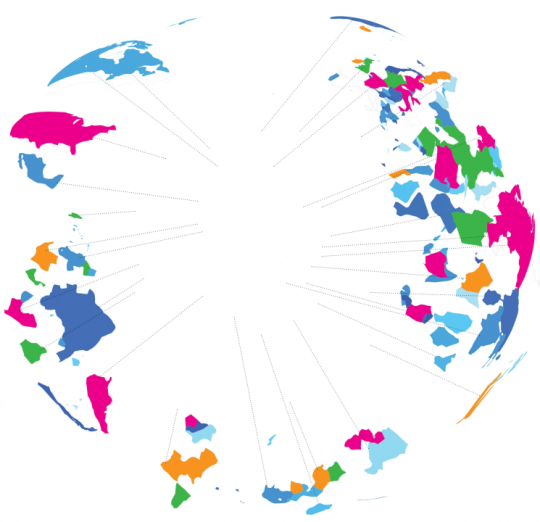
We can say that the world has changed radically, and this has been a dizzying month in that sense. The current geopolitical situation leads us to uncertainty about what the future order may be, but we know that it will certainly be different from the pre-pandemic past as we know it.
Despite being common to discuss an increase of division within the European Union and the transatlantic relationship, we have to admit that we have witnessed a very strong demonstration of cohesion, reinforced by the presence of Biden at the European Council on 24 March, and confirmed by a special NATO and G7 Summit.
This last month, there was a clear relaunch of NATO as a defensive alliance with great internal cohesion and a sense of solidary future. And the present crisis has managed to boost strong European integration and allow it to achieve in three weeks what had probably not been achieved in the last 10 years. We are finally seeing the European Union ready to stop being so dependent on Russia for energy, making progress in its integration in the field of defense.
The ramifications of the impact of Russia's invasion of Ukraine are not limited to the European context or transatlantic relations. The nuclear peace agreement is suspended for the moment, imposed by Russia. We are seeing the dispute between Israel and Turkey; there is strong US pressure on China not to support Russia; India is in a relatively ambiguous position, and we have underlying systemic changes taking place. It is a new framework of international interactions that can lead to a continuous reconstruction of international order.
We are witnessing an increasingly isolated Russia. Uncertainty and insecurity are leading to great economic inflation and a trend towards deglobalization that can evoke the creation of technological, ideological, and military blocs that are even more strict if the process is not blocked.
The food security and global food crisis are also real and will lead to large migratory movements.
We are truly in a framework in which anything can happen, and the great doubt is justified: will all this lead to less globalization or even deglobalization? The signs are on the wall, and we'll have to know how to read them.
In an online conference promoted by the Gulbenkian Foundation on March 21st, entitled: Invasion of Ukraine – Challenges for Europe and the World, Durão Barroso mentioned that a Russia increasingly dependent on China could accelerate a process of deglobalization.
Deglobalization is a term used primarily to refer to the deconstruction of the ideals of economic, social, and cultural globalization and, in the current context, I believe that we may be on that path.
And what new paradigm can we have for the corporate world? As mentioned in one of our past newsletters, there was a clear reaction from the corporate world regarding the conflict when we saw “so many companies, from so many industries and so many geographies, came together to “express” the same views and condemnation,” which makes me believe that, just as we witnessed the relaunch of Nato and the strengthening of the European Union in the last month, we will also witness the reorganization and economic union of the corporate world around a purpose that can come to design something new, which could effectively be a new corporate paradigm. Which one? The future will clarify.
We will certainly continue to pay attention to this change, not ceasing to believe that Responsible Business will transform this “force for good” that we know exists.
Have a great and impactful week!
Mafalda Sarmento
Researcher
Center for Responsible Business & Leadership
This article refers to edition #133 of the "Have a Great and Impactful Week" Newsletter and covers SDGs 16 and 17.
Subscribe here to receive the weekly newsletter